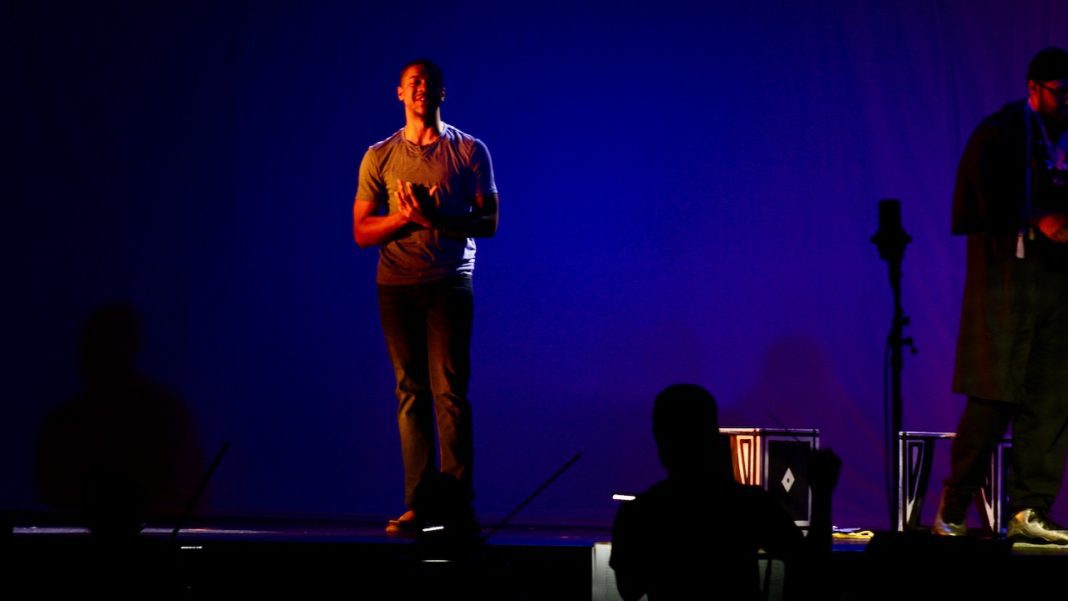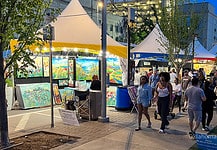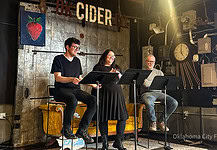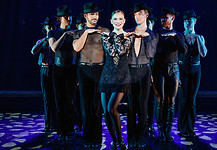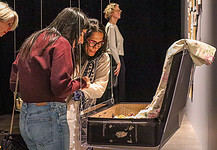Last Updated on June 24, 2022, 2:59 PM | Published: June 24, 2022
We’re living in a post-subtlety era.
Just a few years ago, right around November 2016, there was a seismic, nearly overnight shift in the prevailing trends of both argument and art. Statements and declarations, no matter how angry or extreme, no longer November 2016 layered nuance or dog whistles.
Everything from political messaging to journalism roundly dropped almost any pretense of stoic professionalism or hushed whisper, preferring instead to go for the jugular and shout all discontent from the rooftops.
Why play coy when audiences clearly responded more aggressively and more quickly to bluntness?
Of course, as always, there came an immediate response from arts and entertainment worldwide, as the same now-tired notions of subtlety and nuance in art were dropped in favor of pointed, in-your-face rebuttals to the powers that be and the laws of the land. New punk movements exploded, street-level rappers became community leaders, and film and television took direct aim at their ideological enemies, all with nary a metaphor in sight.
And yet, the perfect medium for this new post-subtlety world sat right there under its nose for so long. One of the most classically revered and complex art forms, designed from inception to slough off the quietly internal and make every emotion, every jagged-edged thought, louder and more blatant than ever.
Opera.
Thanks to a group of young writers and creators right here in OKC, the most damning social issues of the present, police violence, institutionalized racism, and the overbearing culture of fear, have found their rightful home in the histrionic, often unwieldy form of opera as “No Justice, No Peace” runs through this weekend at Capitol Hill’s Yale Theater.
“A Personal Journey”
“No Justice, No Peace” is originally the brainchild of composer Chris Prather, who began exploring the themes of loss and injustice in shorter operatic experiments for the micro-opera operation Opera on Tap, a group that brings singers and musicians together to perform short works and selections at bars and festivals.
While opera is not only a possibly strange choice for a musician and composer of Prather’s young age, and surely an unexpected choice for such dire and serious modern issues, he told me that it felt like the right fit for the level of emotion on display.
“Opera combines this intimate storytelling with music in a way that allows us to think more deeply about the topic being presented in a way that is unlike any other art form,” he said. “One of the things I find so powerful about opera is that it allows the audience to feel as if they are going on a personal journey with the character in front of them. The character is sharing their most vulnerable moments, allowing us as audience members to connect on a deeper level.”
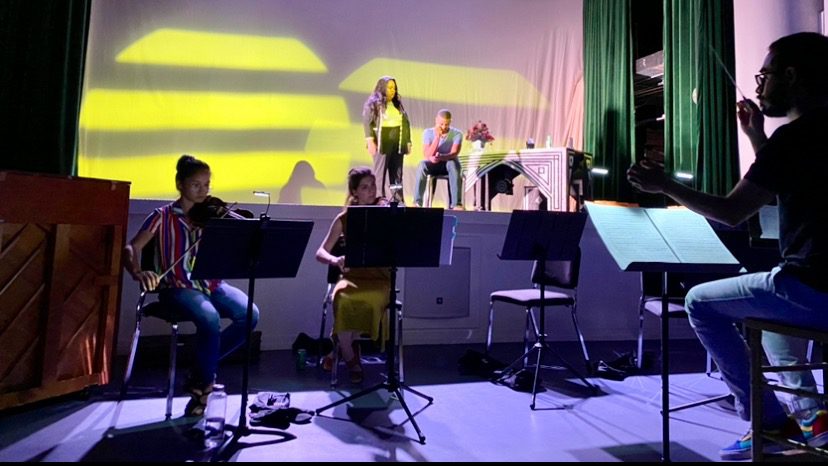
After a positive initial response, both Prather and Opera on Tap felt it was clear that the project could benefit from being expanded into a full narrative, so he enlisted his twin sister, writer/journalist Megan Prather, and close friend and part-time rapper Kenneth Woods to help flesh out the story, lyrics, and dialogue, while set about work on the score.
After some COVID-caused setbacks and lots of delays and fine-tuning, the trio partnered with stage director Cheyanne Marie and an effectively small, ten-piece orchestra under the artful, confident direction of conductor Jose Batty to bring the show to the Yale Theater.
Marvelously Musical
One has to put themselves into a certain mindset to digest and enjoy true opera.
For starters, the complexity of the music practically never offers traditionally satisfying resolve or easily followable rhythms or melodies, instead tracking over the course of a character’s stream of conscious thought and feeling, rising and falling and twisting and often landing on an unexpected or suspended note.
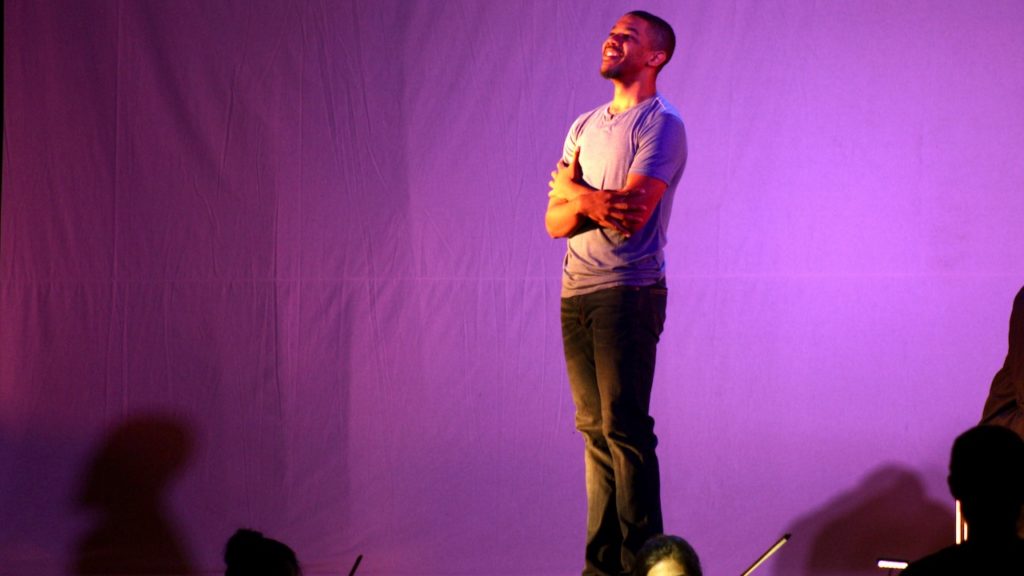
The music that Prather gave to the ensemble here works along those same lines, complex, swirling, at times nearly inscrutable, but peppering moments of familiarity and cultural reference points throughout.
Woven into the score, you’ll find deconstructions of antebellum gospel vocal melodies or civil rights-era jazz saxophone, and more obvious allusions to “The Star-Spangled Banner,” warped and falling apart under its own weight.
But nothing shines in this production like the singers.
Singing opera is arguably the most challenging and accomplished feat that a singer can perform, and all five of the vocalists in this show prove that they belong there with impressive, powerful, and wonderfully complimentary voices.
Special mention must be made, however, of Lorenzo Butler as Anthony and Kayla Marshall as Chloe.
Butler’s tenor is not only pitch-perfect and robust, but his ability to reach up into a just-as-powerful higher register at the most emotive and crushing moments is unforeseen and adds beautifully to the rising intensity.
Marshall’s ethereal vocalizations and duet prowess is striking, but she also delivers perhaps the most natural and infectious acting performance of the entire cast.
“A Subject like This”
When seeing an opera in your native language — an admittedly rare experience for American English — you expect an especially high level of bluntness and heavy-handedness as the characters sing and emote every thought, every feeling, every motivation, leaving practically nothing to interpretation. That’s the core language of opera, and it’s absolutely the case with “No Justice, No Peace.”
Yes, the subject matter and motivations are delivered with a sledgehammer, and yes, once the characters and their personalities and histories are established, the coming plot points feel almost obvious and inevitable.
But that’s kind of the point.
Opera isn’t about subtlety, it’s about emotion made clear and unequivocal, and the plot isn’t designed to twist and turn, but to set these characters on a seemingly predestined collision course that’s become all too daily and familiar in this country.
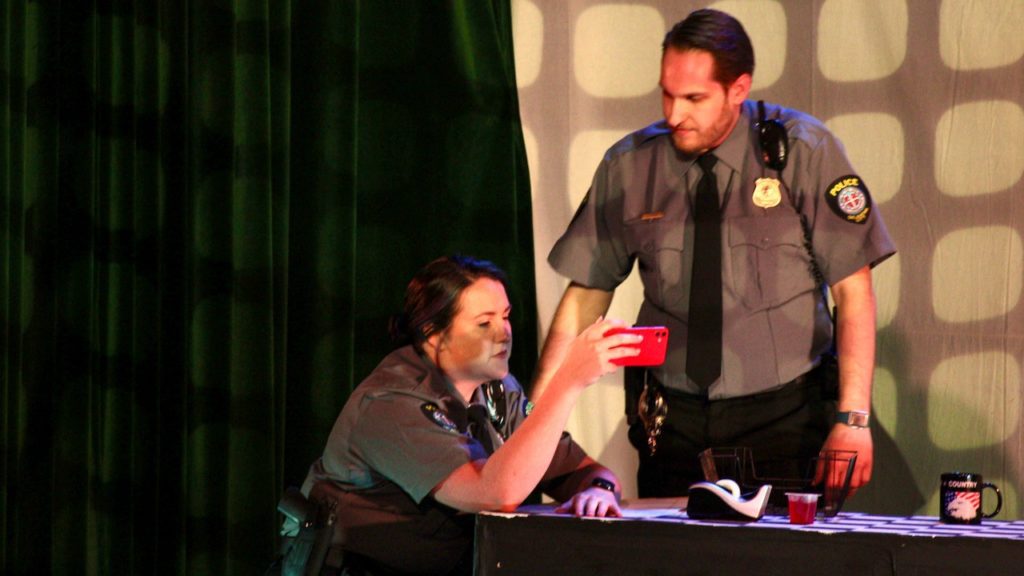
“What I love about this being an opera is that it’s giving people you wouldn’t normally see doing this the opportunity,” Woods said. “Yes, with this being an opera, it does bring a heightened sense of emotion because you get to see and truly feel the characters and what they go through. We need that for a subject like this.”
That subject, unsurprisingly, is the far-too-consistent tragedy of police killings of black men. But rather than approach the issue through the frame of explicit racism or hatred, the writing team seeks to explore the often media-driven culture of fear that sets the two sides against one another. The black family is afraid of the police, but the police are also taught to fear for their own lives and take no chances.
The exploration of this theme alone provides the nuance that is largely dismissed in the dialogue and bluntly emotional lyrics.
No clear sides are ever taken. Even if you expect a certain side or character to play the villain, the insistence on providing the most earnest and unsubtle motivations for everyone involved makes it impossible to cast blame in any direction.
The World Stage
Ultimately, the goal of “No Justice, No Peace” is to shine a light on an ongoing issue, and on the impossibility of finding a middle ground, by using the largest, loudest, most dramatic form possible to match the size and drama of the topic itself. The hope, clearly, is to place the tragedy of American racial fear alongside the other most notable ancient and classical tragedies of opera.
There is no doubt that this production achieves that goal.
Though this weekend’s initial run of performances is currently the only run scheduled, the team does have hope of future productions of the opera, and has recorded and filmed a full performance already to be released online soon in the hopes of sharing and spreading the show around.
If you’re a fan of opera, of experimental theater, or just looking to experience a new way of lifting the most pressing social issues onto the world stage, you should make it to the Yale Theater this weekend.
“No Justice, No Peace” runs this weekend at the Yale Theater at 227 SW 25th in historic Capitol Hill, June 24th, 25th, and 26th.
For more information, including ticket links and show times, visit “Opera on Tap – OKC Presents: No Justice, No Peace” on Facebook.
Brett Fieldcamp has been covering arts, entertainment, news, housing, and culture in Oklahoma for nearly 15 years, writing for several local and state publications. He’s also a musician and songwriter and holds a certification as Specialist of Spirits from The Society of Wine Educators.
